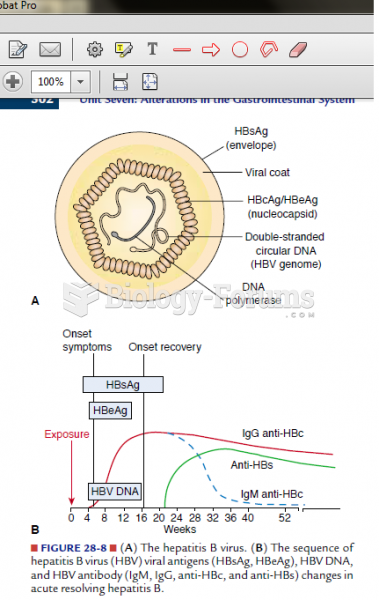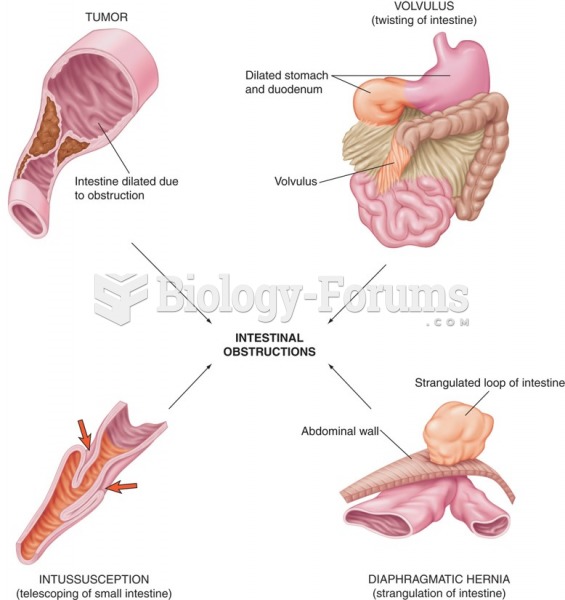|
|
|
Prostaglandins were first isolated from human semen in Sweden in the 1930s. They were so named because the researcher thought that they came from the prostate gland. In fact, prostaglandins exist and are synthesized in almost every cell of the body.
The cure for trichomoniasis is easy as long as the patient does not drink alcoholic beverages for 24 hours. Just a single dose of medication is needed to rid the body of the disease. However, without proper precautions, an individual may contract the disease repeatedly. In fact, most people develop trichomoniasis again within three months of their last treatment.
One way to reduce acid reflux is to lose two or three pounds. Most people lose weight in the belly area first when they increase exercise, meaning that heartburn can be reduced quickly by this method.
The people with the highest levels of LDL are Mexican American males and non-Hispanic black females.
Alcohol acts as a diuretic. Eight ounces of water is needed to metabolize just 1 ounce of alcohol.
 Nephrolithiasis. Stones, or calculi, may form in several areas within the urinary tract. When they f
Nephrolithiasis. Stones, or calculi, may form in several areas within the urinary tract. When they f
 Gastric cancer. In advanced stages of gastric cancer, malignant cells spread to form tumors in the l
Gastric cancer. In advanced stages of gastric cancer, malignant cells spread to form tumors in the l





